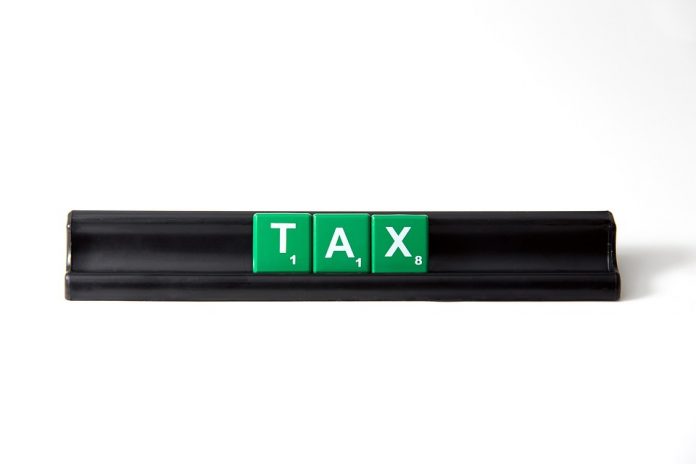The Republicans have recently released two different versions of a tax plan that purports to support small businesses. But do either the Senate or the House versions really help? As always, the devil is in the details.
For the most part, reductions of the corporate tax rate won’t help.
Both bills call for a reduction of the corporate tax rate from 35% to 20%. Most home-based businesses, however, are either sole proprietorships or treated as pass-through entities. As such, there is no “corporate” tax on the profits, avoiding double “double-taxation” of corporate taxes and then taxing the individual distributions. Instead, the income is “passed through” to the individual owner and is only taxed at the personal level.
Rather than being a C Corp, most home-based businesses are sole proprietors (not recommended for a number of reasons). Others make what is called an S Corp election, so that the owner will only pay one level of taxation.
Here’s an example. If a company (without an S Corp election) has one owner who is single and has a profit of $100,000, then the corporation pays taxes on the $100,000. Under the current estimated corporate tax rate of 35%, $35,000 in taxes is paid by the company on the profits. The remaining $65,000 is distributed to the owner, who would then pay tax on their share of the $65,000 at the singles taxable rate of approximately 25% ($16,250). The total taxes paid would be $51,250, resulting in the business owner retaining less than half of the profits. Of course, these are estimates (as taxes are not as simple), but this hypothetical shows how these tax schemes generally work.
Obviously, if you are C Corp, the reduction of the corporate tax rate from 35% to 20% will save you money. But as you will see, paying as a C Corp usually does not make sense for most home-based businesses. With an S Corp election, there is no tax at the corporate level on the $100,000 profit. As a result, $100,000 is distributed to the owner. The current tax rate for single individuals earning $100,000 is roughly 28% on the last $10,000 of income and 25% of the first $90,000 of income. Therefore, the business owner would pay about $26,000 in taxes, keeping about 75% of the income.
Do the changes to pass-through income help me?
The House’s Plan
The House of Representatives proposal seeks to cap pass-through income at 25% rather than whatever tax rate may apply to the individual business owner. So instead of applying your individual tax rate to the pass-through income, the rate would be capped at 25%. Staying with our example of the $100,000 of pass-through profits for the single business owner, the cap would limit the tax to 25%, or $25,000. There would be a little savings for the business owner, and would only apply to income earned over an estimated $90,000 for a single individual, or $150,000 for married taxpayers. Until you hit those thresholds, there really is no benefit to capping the pass-through income at 25%.
Clearly, you stand to gain much more when your profits are much larger. Instead of $100,000, let’s say the pass-through income is $1,000,000. In that case, the proposal would limit the taxes on income at 25%, or $250,000. Without this change, the business owner receiving that amount of pass-through income would pay taxes based on their personal rate of 39%. The savings for the more profitable business would almost reach $150,000.
Based on these savings, you would think small business organizations would fully support this plan. But support from small business organizations is lukewarm. For one, estimates suggest only about 13% of small businesses currently pay more than 25% on their pass-through income because most simply don’t earn enough where the application of their individual rates would exceed 25%.
The other point of resistance to the House plan is angst about the “70/30 rule”, which would mandate that business owners actively involved in their business as their primary employment would have to treat at least 70% of their income as salary, and could only designate 30% percent of their income be subject to the 25% pass-through rate. For our $100,000 small business owner, there is no impact because the cap doesn’t impact the smaller business. For the $1,000,000 business, the rule is a big deal. With the 70/30 rule applied, the taxpayer would have to pay a 39% tax rate on $700,000 of the income, and 25% on $300,000 of the income. The total tax bill would be approximately $350,000. While that still saves $40,000 from the current tax structure, it loses close to $100,000 of the savings that would be there without the 70/30 rule.
The Senate Plan
In contrast to a cap on pass-through income, the Senate proposed to allow small businesses to reduce their income by 17.4 percent, subject to certain limitations. For the $100,000 home-based business, instead of being taxed on $100,000 in income, the owner would pay taxes on $82,600. Applying a 25% tax rate means the tax bill is $20,650 instead of $25,000.
Additional details worth noting
There are other provisions that could benefit home-based business owners. These might include quicker depreciation of business assets, but those are hard to apply to home-based businesses generally. While the the goal was simplicity, don’t expect to cut down on your tax preparation headaches or fees if either of these proposals pass without significant change.
The bottom line is that unless your home-based business income is substantial, you may see some minor savings. Unless the bills change significantly, however, you may want to focus on what Congress does to your individual tax rates and deductions. There is not much red meat in the current proposals for the typical home-based businesses making less than $200,000.
Chart – Summary of Home-Based Business Tax Issues in Each plan
Tax Issue
| Tax Issue | House | Senate |
| Corporate Rate | 35% to 20% in 2018 | 35% to 20% in 2019 |
| Pass-Through Rate | 25% cap subject to 70/30 Rule | 17.5% reduction in income |
| Depreciation Rates | Speeds up most depreciation | Increased Auto Depreciation; removal of computers |
| Business Interest | Limited to 30% of income | Limited to 30% of income |
| Meals and Entertainment | Meals only | Meals only |
Hundreds of Business Opportunities – Visit the Home Business EXPO
Find a Home-Based Business to Start-Up >>> Hundreds of Business Listings.
















































